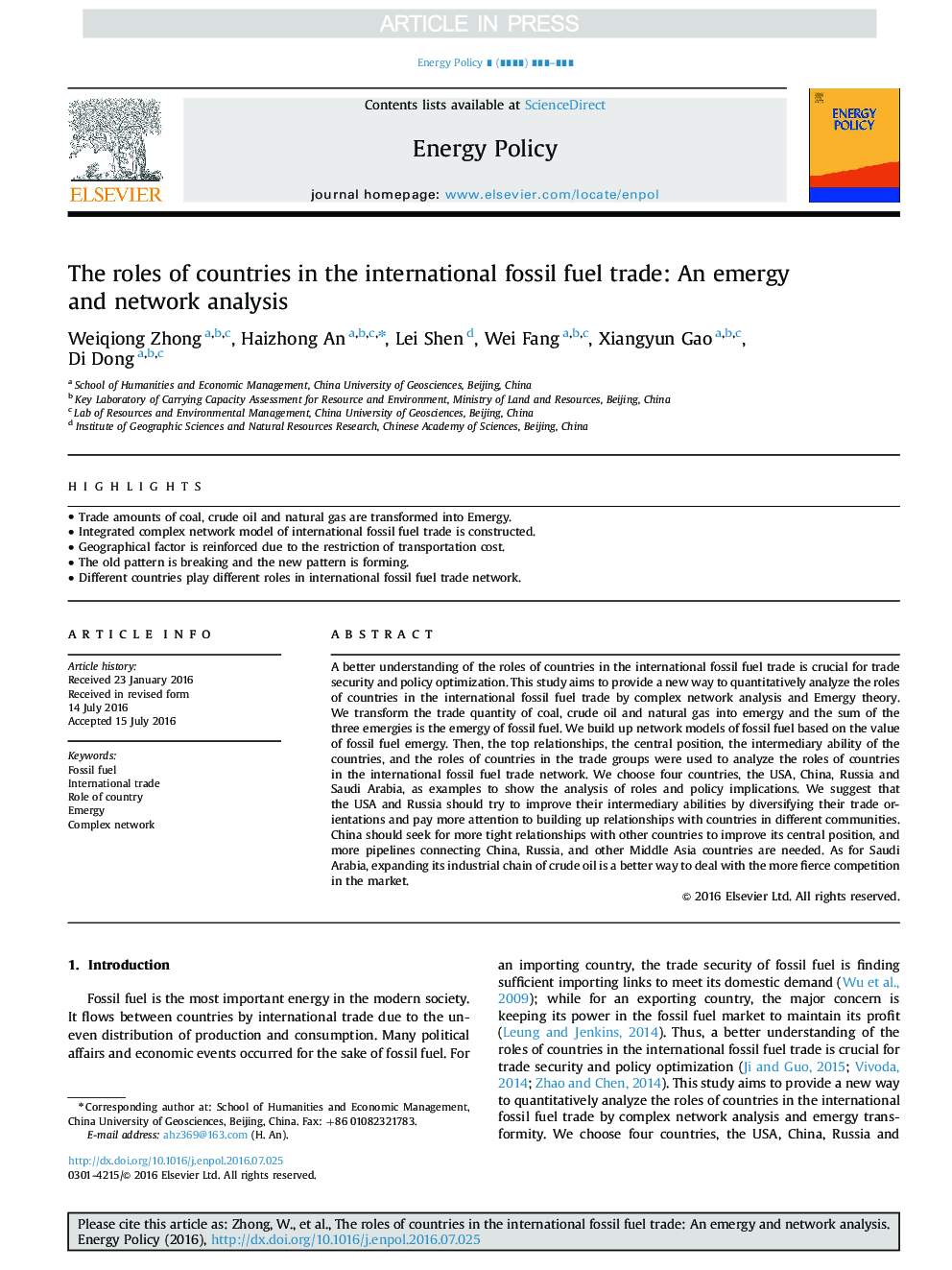| Article ID | Journal | Published Year | Pages | File Type |
|---|---|---|---|---|
| 5105835 | Energy Policy | 2017 | 12 Pages |
Abstract
A better understanding of the roles of countries in the international fossil fuel trade is crucial for trade security and policy optimization. This study aims to provide a new way to quantitatively analyze the roles of countries in the international fossil fuel trade by complex network analysis and Emergy theory. We transform the trade quantity of coal, crude oil and natural gas into emergy and the sum of the three emergies is the emergy of fossil fuel. We build up network models of fossil fuel based on the value of fossil fuel emergy. Then, the top relationships, the central position, the intermediary ability of the countries, and the roles of countries in the trade groups were used to analyze the roles of countries in the international fossil fuel trade network. We choose four countries, the USA, China, Russia and Saudi Arabia, as examples to show the analysis of roles and policy implications. We suggest that the USA and Russia should try to improve their intermediary abilities by diversifying their trade orientations and pay more attention to building up relationships with countries in different communities. China should seek for more tight relationships with other countries to improve its central position, and more pipelines connecting China, Russia, and other Middle Asia countries are needed. As for Saudi Arabia, expanding its industrial chain of crude oil is a better way to deal with the more fierce competition in the market.
Related Topics
Physical Sciences and Engineering
Energy
Energy Engineering and Power Technology
Authors
Weiqiong Zhong, Haizhong An, Lei Shen, Wei Fang, Xiangyun Gao, Di Dong,
